5. Bad Trip
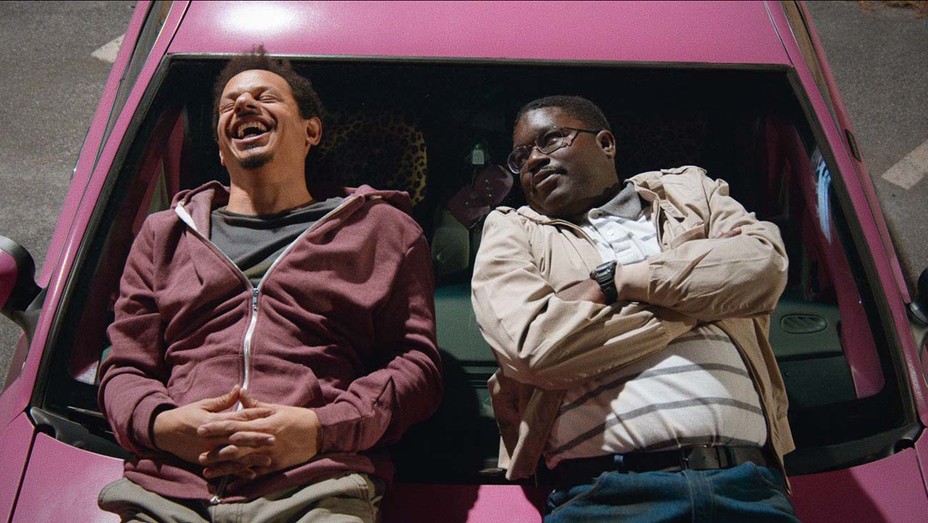
And speaking of an antidote to the staleness of modern American filmmaking, “Bad Trip” (produced before the pandemic and originally set for a theatrical release before being sold to Netflix) feels like the best possible answer to the “improv style” that has become the dominant form of cinematic comedy.
The style, of course, produced some definitive classics of modern comedy (all of the early Ferrell/McKay, especially) but it’s been tired for some time; if there was one genre in desperate need of reinvigoration, this was the one. Enter Eric Andre, one of the most unique, original and simply hilarious voices in comedy, with a movie that takes that style to its ultimate extreme, making actual improv, with unaware non-professionals as an integral part of the story.
Of course, Andre (and his collaborators, director Kitao Sakurai and co-stars Lil Rel Howery and Tiffany Haddish) are not the first to make a hidden-camera prank movie, but the way “Bad Trip” ingeniously crafts an entire narrative around the pranks in a completely organic way is wholly unique and the key to it’s unrelenting hilarity, making the absurd interactions with real people even funnier.
4. Procession
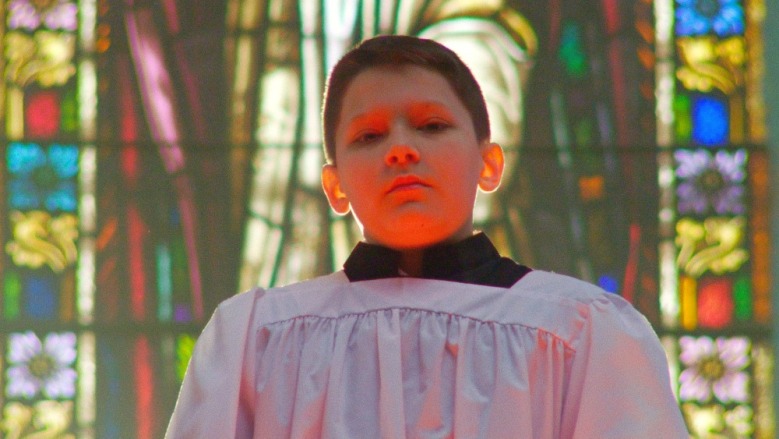
Another corner of the market Netflix has conquered for itself is the documentary miniseries, particularly of the true crime variety – it’s not hyperbole to say that as many people seek non-fiction narrative on the platform as those that binge fictional shows.
Which is why it is strange that Netflix hasn’t made a greater effort to invest in documentary features as well, or at least not in the breadth they do with longer form. “Procession” is an example of the kind of powerful filmmaking we could be getting if they were putting money in difficult, important material the same way they do in those more sensational stories.
Robert Greene’s movie, which deals with 6 men processing the sexual abuse they suffered at the hands of catholic priests as children by creating short films, is obviously not an easy watch, unflinching in its emotional honesty (particularly revealing in how it shows the anger of these men) and infuriating in what it exposes. But it’s also a supremely hopeful movie, ultimately less about the trauma than about the healing, and what it takes to achieve peace in the face of overwhelming darkness.
3. Passing
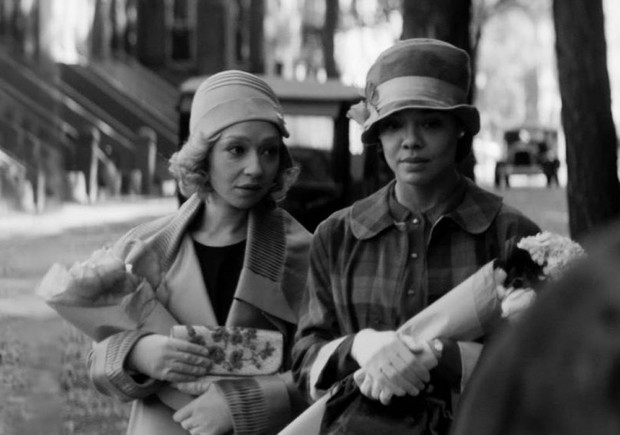
2021 saw the release of two stellar directorial debuts by great actresses, both of which were released by Netflix. They’re complex, ambitious, daring, ambiguous, unapologetically adult films in a culture dominated by childish material. Claiming one is better than theother seems foolish, so their placement on this list will be simply chronological.
The first to be released was Rebecca Hall’s “Passing”, a passion project the performer turned filmmaker had been chasing for years, never allowing the lack of finances to dwindle her belief in the project, an adaptation of Nella Larse’s novella about the relationship between two black women in 1920s New York and the social and psychological effects of their passing for white.
That drive and fierce commitment to a vision that Hall demonstrated by sticking with the movie for so long is visible in every second of the finished product, which, despite it’s limited scope, is in every respect dripping with assured, thought out choices from its director. There were many black and white movies released in 2021, but none of them used this formal aspect to better effect, none married their aesthetic to theme and story the way Hall does here.
And of course, it’d be impossible not to mention the two incredible performances at the center of “Passing”, both Tessa Thompson and Ruth Negga delivering some of the most outstanding work of their entire careers.
2. The Lost Daughter
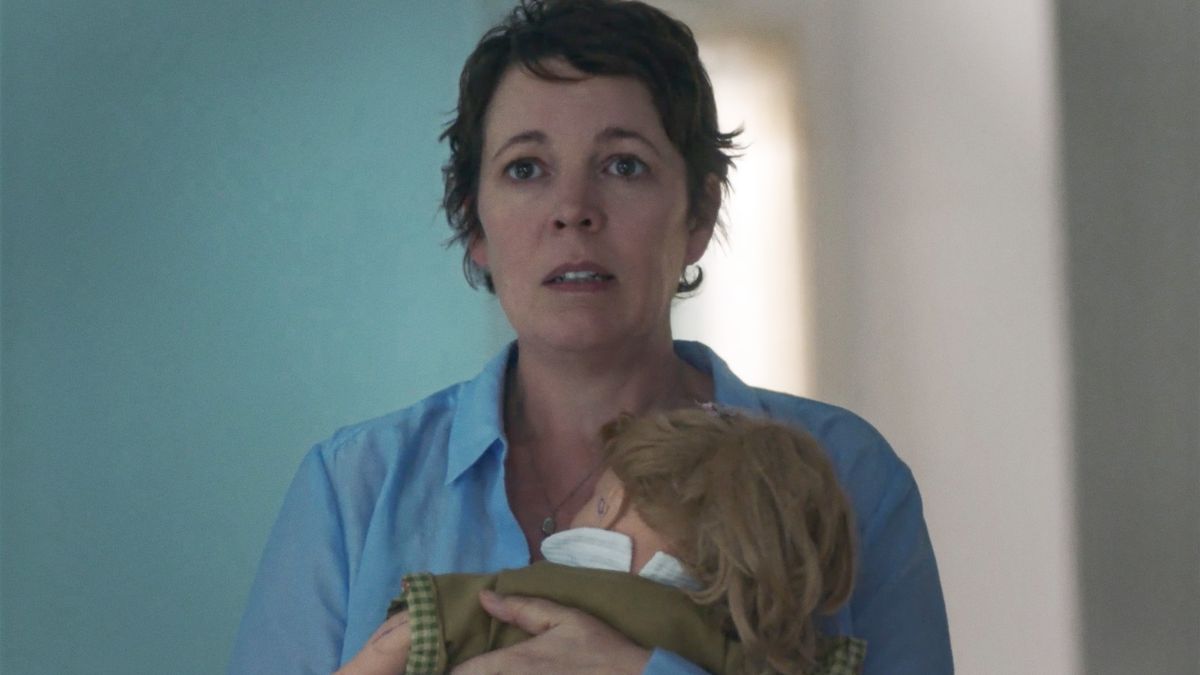
A few months after Rebecca Hall’s “Passing” premiered, Netlix released the other phenomenal debut from an acclaimed actress it had picked up for distribution: Maggie Gyllenhaal’s “The Lost Daughter”.
The figure of the male anti-hero has been an iconic presence in cinema since basically the inception of the medium, but that moral grey-ness, from which so many of the greatest characters of all time have been born, has rarely been afforded to women. Of course, morally complex female characters are not a completely unprecedented phenomenon (actresses like Isabelle Huppert wouldn’t have a career otherwise), but even still, it’s exceedingly rare for a film to put some unapologetically unpleasant traits in a woman protagonist – which is one of the reasons “The Lost Daughter” felt so fresh.
A lot of that, naturally, comes from Elena Ferrante’s original novel, but those that diminish Gyllenhaal’s accomplishment as mere translation of the book’s qualities are missing her expert handling of the material. Ferrante is a very difficult author to adapt to screen, considering how internal her stories are, which Gyllenhaal conveys beautifully (tough in a deceptively simple way) through her choices of camera placement and editing. Of course, it helps to have an actress like Olivia Colman in the lead, who can so brilliantly communicate an infinite amount of feeling with so little.
1. The Power Of The Dog
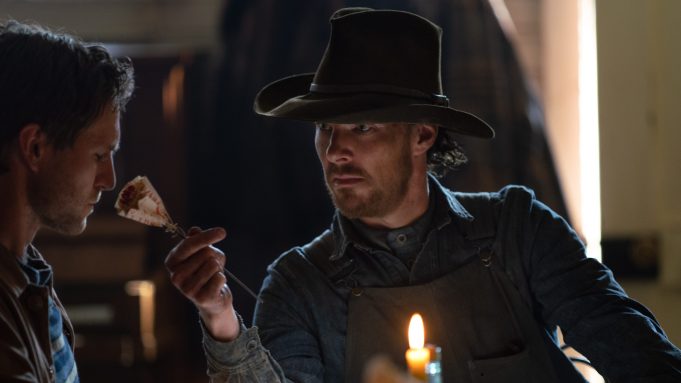
This choice will come as no surprise to anyone who has been paying any attention at all to cinema for the past year: the acclaim for Jane Campion’s “The Power Of The Dog” has been so ubiquitous that it’s been simply impossible to ignore the film altogether.
Then again, no one who has seen Campion’s gorgeous neo-western would want to (or even be capable of) remaining indifferent to the movie’s sumptuous aesthetic pleasures or it’s surprising, ambiguous psychological undertones. Campion’s cinema has been one built on the tension between the sensual and the intellectual; she’s a filmmaker who can create ecstatic sensorial experiences whilst, sub-textually, questioning and subverting what’s being presented on the surface – the clearest example of this is her much maligned “In The Cut”, which appeared initially to be a lurid, trashy thriller, but was, in fact, a radical feminist rebuke of the whole genre.
“The Power Of The Dog” continues that auteurist trait, trafficking in masculine tropes and iconography as a means to interrogate identity, gender roles and perceptions. But the true genius of the film lies not in how it demolishes its toxic protagonist (a fairly easy target) but how it subverts our entire understanding of predator and prey in its final minutes – it’s a feat of patient storytelling that re-contextualizes everything that came before and makes future rewatches eve richer.